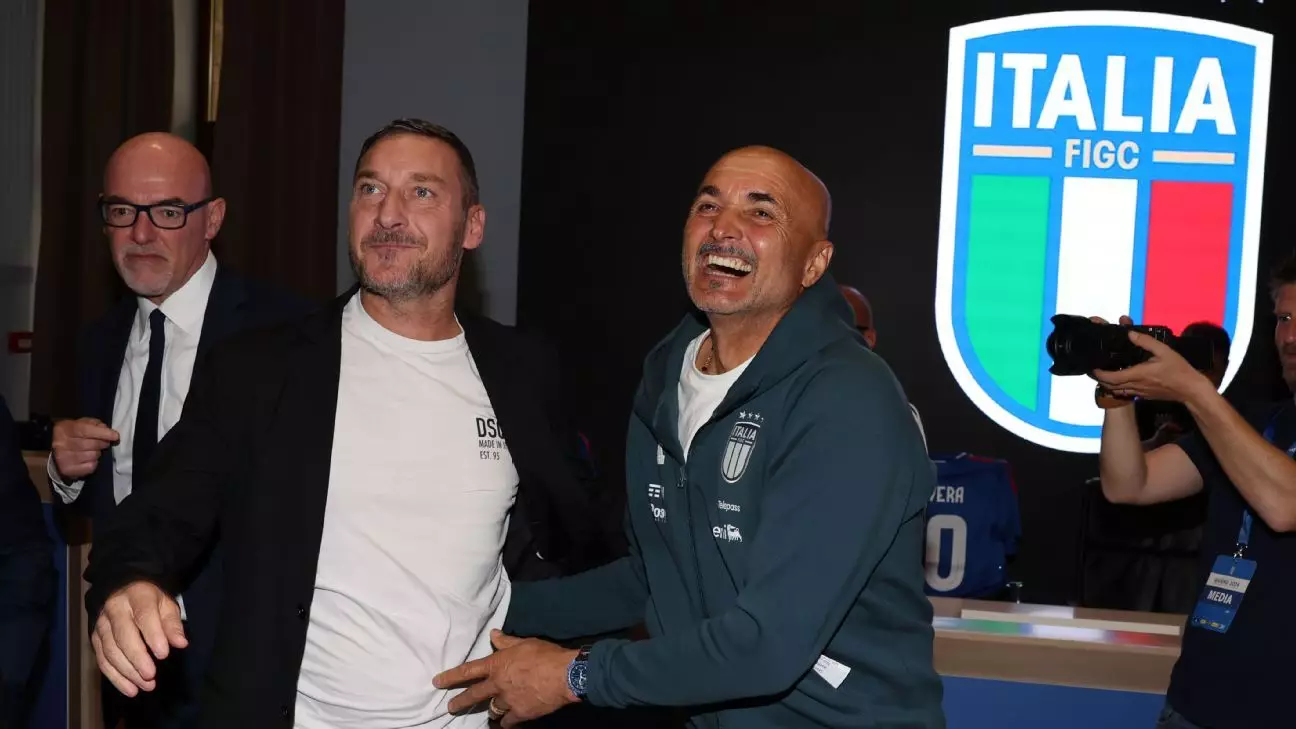Francesco Totti, an emblematic figure in Italian football, continues to cast a long shadow over the sport, even at the age of 48. A product of AS Roma, Totti devoted his entire professional career to the club, accruing impressive statistics with 786 appearances and 307 goals. Officially retiring in 2017, one might assume that Totti would relish his post-playing years. However, recent revelations reveal that the siren call of professional football still echoes in his mind, as Serie A teams reportedly reach out, tantalizing him with visions of a potential return.
Totti’s statement about requiring merely two to three months of rigorous training to regain match fitness reflects not only his competitive spirit but also a nuanced understanding of the physical demands of the sport. This confidence in his own abilities raises critical questions: Is a return to professional play realistic at this stage, or is it merely a reflection of a deep-seated passion for the game? His candid acknowledgment that, while he views such a move as “crazy,” it remains in the realm of possibility showcases the complexity of an athlete’s identity post-retirement. The emotional ties to the game seem hard to sever, particularly for someone who has experienced profound success and personal satisfaction within its confines.
Firm Stances and Rivalries
Totti’s loyalty to Roma is unwavering, demonstrated by his categorical refusal to entertain the idea of playing for Lazio, Roma’s historic rivals. This warrior mentality epitomizes the passion that Italian football is known for. Totti further insinuates that if he were to make a comeback, it would only be in Italy—highlighting an intrinsic belief in regional loyalty and pride. His resolve speaks volumes about his values and the bonds forged with his club, providing insight into the fierce rivalries that define not just Italian football, but the sport at large.
Moreover, Totti’s reflections on the nature of retirement provide valuable insight into the psyche of retired athletes. The notion that he did not choose to retire adds depth to his narrative, revealing an emotional struggle. Many retired athletes often grapple with the abrupt transition from a vibrant sporting life to the mundane aspects of everyday existence. Totti’s internal conflicts highlight this common phenomenon, where the final whistle resonates not just as an end, but as an unfinished chapter—a lingering window that remains ajar.
The difficulties faced by AS Roma in the 2023-24 season cast a stark contrast to Totti’s illustrious career. The club’s decision to part ways with fellow icon Daniele De Rossi, after a rocky start to the campaign, underlines the unstable nature of football today. Roma’s standing in the league—currently at 10th place—further emphasizes the need for stability and clarity, an environment that Totti once provided effortlessly on the field.
Francesco Totti remains a compelling figure, not merely for his statistics, but for the nostalgia and connection he brings to the sport. Whether he aims for a comeback or simply provides a reminder of a glorious past, his role as a custodian of football’s spirit is undeniable. As long as the passion burns within, the possibility of Totti’s return, however improbable, serves as a beacon of hope for fans and players alike.

